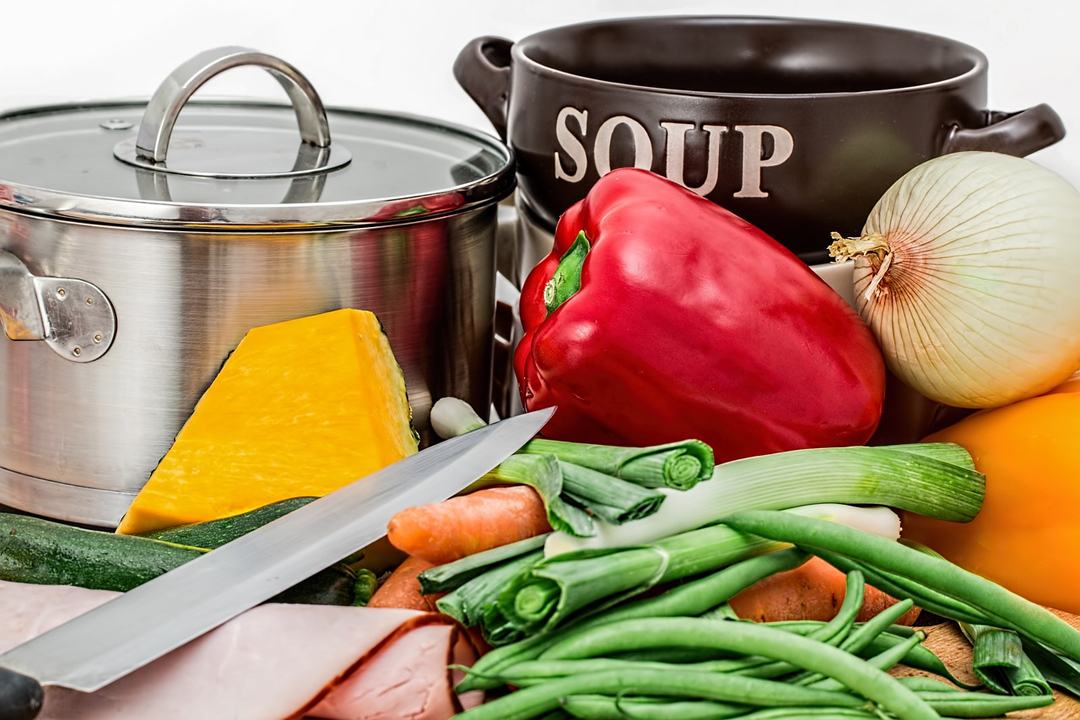
So many foods can be cooked without added oils and can still taste good and make you feel a lot better after eating. In this article, we will discuss all of the benefits of cutting out oil in your cooking and how to get started with the oil-free cooking process.
Heart Health
The heart is one of the most important organs in the body, so it is important the be conscious of it when eating food. Excessive consumption of oil can lead to cardiovascular disease and increase cholesterol levels, leading to a shortened life span.
Certain oils are high in saturated fats which can increase LDL cholesterol levels and cause plaque buildup in your arteries. This could lead to a heart attack or other cardiovascular issues, so cooking without oil is a good choice if you have a family history of heart disease or have been told by your doctor to watch your heart.
Fewer Skin Problems
Many people don’t consider the intake of oils with skin health, but using oil while cooking can have a large impact on your skin. If you have had issues with acne or unclear skin, cooking with oil might be a factor in those flare-ups.
When we cook with oil, the oil heats up and tends to splatter everything in the surrounding area. This includes your face. The hot oil mixed with the spices and whatever else it is being cooked with mixes with the natural oils on your face and causes buildup in your pores. This then leads to skin irritation and acne-like white and blackheads.
Unlike the other benefits of skipping oil when cooking, this is an external improvement. Other parts of the body are affected when we consume oil in our food, but our skin is affected when it is touched by cooking oil. Try to cut oil out of your cooking routine for a week and see how much better your skin feels.
Energy Increases
Eating foods with little to no oil gives you much more energy than eating foods with oil. Oil is a hard-to-digest food, so when we eat greasy foods like deep-fried pastries, pizza, french fries, potato chips, etc., our body has to dedicate a lot of energy to breaking it down in our stomachs. This is why we feel so lethargic after a big, oily meal and don’t want to do anything but lay around.
A healthy and well-rounded meal should leave you feeling energized and ready to continue your day. If you are going to cook food, try using other methods besides oil cooking and incorporate raw vegetables as a side to balance out your nutrient intake. Foods that help increase your energy include proteins like nuts, eggs, meat, and beans. Also, complex carbohydrates like oatmeal and fresh fruits like berries offer great morning fuel to keep you going all day long, no oil required.
Eases Digestion
An oil-free meal is a lot easier to digest than a meal full of fats and oils. After adopting an oil-free cooking routine, you will start to feel the difference after each meal. No more boating, acid reflux, indigestion, or other gastrointestinal problems.
Once oil enters the stomach, the body immediately starts working overtime to break it down. Of all of the substances that humans eat, between protein, carbs, and fats, fats like oil take the longest to break down. That is why we experience things like acid reflux and nausea because the acid in our stomach is fighting against the copious amounts of oil.
The myth that oil “eases” food through the digestive system has persisted for too long and it is time to reduce or cut down oils completely out of our diets. The path to healthy eating starts with a plan. If you don’t know where to start when cutting out oil in your cooking routine, check below for some tips.
How To Cook Without Oil
Many people argue that cooking with oil not only makes things easier as food doesn’t stick to the pan, but it also makes food taste better. This is a common misconception when thinking about cooking.
Non-Stick Pans
Non-stick frying pans are available almost everywhere and have been used for years as an alternative to coating a pan with oil before the cooking process. These types of pans are lined with a substance called polytetrafluoroethylene, or PTFE, which is engineered to keep substances like food from sticking to a hard surface. This eliminates any need for oil.
Air Fryers
In the last five years or so, air fryers have been popping up in households as an alternative to ovens and other frying or baking devices. Air fryers have the ability to cook food in a fraction of the time of an oven and without the use of oil.
The use of the word fryer is because the air in the air fryer can get so hot that it simulates the process of submerging food in an oil fryer without any oil. These devices can cook virtually anything and are sure to stick around as a staple kitchen appliance. With their growing popularity, more and more people are using less and less oil when cooking.
Baking
Choosing to bake foods like chicken, beef, and vegetables instead of frying them up in a skillet eliminates the use of a lot of oil when cooking. All you have to do is get a baking pan, line it with tin foil, and season it. Most foods peel right off of tin foil, eliminating the need for oil.
Get More Creative With Spices
Oil-free cooking is a lifestyle choice that has improved the lives of many and it is definitely worth a try if you are feeling like a change in your cooking habits.
Comments
comments